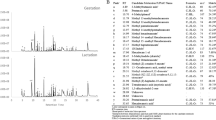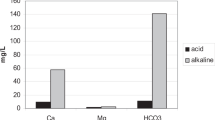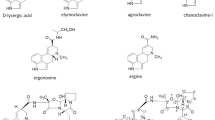Abstract
IT is generally accepted that urea is toxic when fed at levels greater than 30–35 gm. per sheep a day. Clark et al. 1 produced toxic effects by drenching sheep with 10 gm. of urea. Peirce et al. 2 killed many sheep when they fed 25–45 gm. of urea per sheep a day; in this experiment, the daily ration of urea was consumed over a period of approximately 1 hr. By adjusting the method of feeding, we have found it possible to feed sheep up to 100 gm. of urea a day with no mortality.
This is a preview of subscription content, access via your institution
Access options
Subscribe to this journal
Receive 51 print issues and online access
$199.00 per year
only $3.90 per issue
Buy this article
- Purchase on Springer Link
- Instant access to full article PDF
Prices may be subject to local taxes which are calculated during checkout
Similar content being viewed by others
References
Clark, Oyaert and Quin, Onderstepoort J. Vet. Res., 25, 73 (1951).
Peirce, Moule and Jackson, Queensland J. Agric. Sci., 12, 107 (1955).
Author information
Authors and Affiliations
Rights and permissions
About this article
Cite this article
COOMBE, J., TRIBE, D. Toxicity of Urea to Sheep. Nature 182, 116–117 (1958). https://doi.org/10.1038/182116a0
Issue Date:
DOI: https://doi.org/10.1038/182116a0
Comments
By submitting a comment you agree to abide by our Terms and Community Guidelines. If you find something abusive or that does not comply with our terms or guidelines please flag it as inappropriate.



